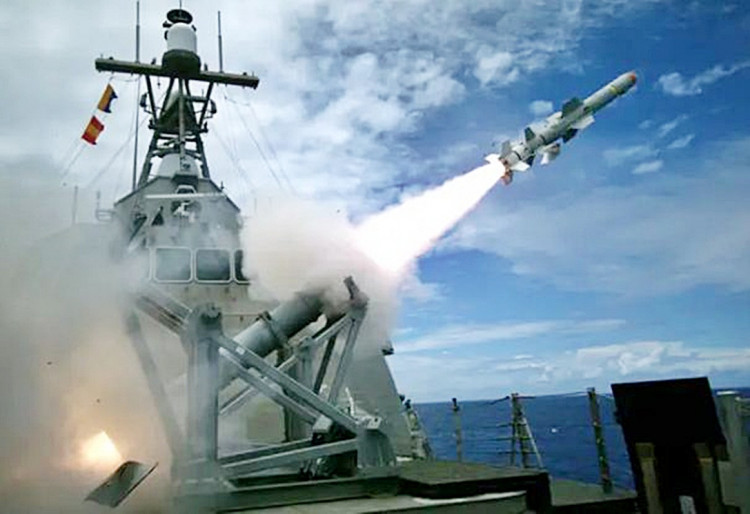The United States and the United Kingdom have intensified their military efforts against the Houthi rebels in Yemen, conducting a series of coordinated strikes. This action, marking the fourth instance of such joint operations, targeted a variety of Houthi installations across Yemen.
The offensive aimed at underground weapons caches, missile storage sites, air defense systems, radars, and even a helicopter, signaling a robust response to the Houthi's escalated activities in critical maritime zones.
The operation saw the deployment of four Royal Air Force Typhoon fighter jets, backed by two Voyager tankers, highlighting the significant resources invested by the coalition in these strikes. This development comes in the wake of the Pentagon's acknowledgment of an uptick in Houthi assaults on commercial shipping traversing the strategic waters of the Red Sea and the Gulf of Aden.
These waterways, integral to global trade, have witnessed a discernible reduction in traffic, attributed to the heightened security concerns stemming from the Houthi's aggressive maneuvers.
The Houthi's actions, particularly their more frequent and consistent attacks, have not only jeopardized commercial shipping but have also posed a substantial threat to the global economy. The international coalition has been forthright in its condemnation of these acts, urging a unified global response to what they term as provocations endangering international commerce and peace.
The US and UK's joint statement underscores the strategic objective of these strikes: to significantly impair the Houthi's military capabilities. Defense Secretary Lloyd Austin emphasized the intent to convey a stern message to the Houthis, holding them accountable for their continued aggression. The coalition's resolve is evident in their commitment to countering any threats to the stability of the region and the safety of international maritime routes.
Despite the coalition's efforts to neutralize the Houthi threat, the rebel group remains defiant, vowing to persist in their military operations. Their attacks, ranging from ballistic missile launches to drone strikes, have targeted a variety of vessels and even attempted to disrupt operations at strategic ports.
This persistent hostility has raised concerns about the potential environmental and humanitarian ramifications, especially in light of incidents like the attack on the UK-registered cargo vessel Rubymar, which now poses a significant risk of an ecological disaster in the Red Sea.
The broader geopolitical landscape is also affected, with the conflict in Gaza spilling over into other Middle Eastern arenas. The Houthi campaign against maritime assets, coupled with heightened tensions along the Israel-Lebanon border and attacks on US forces in Iraq by pro-Iran militias, illustrates the complex and interconnected nature of regional security challenges.
As the international community grapples with these unfolding events, the coalition's military actions against the Houthis underscore the critical importance of maintaining the free flow of commerce through some of the world's most vital waterways. The continued instability in Yemen and the broader Middle East remains a pressing concern, with far-reaching implications for global peace and economic stability.




